KHARPP charity founder Dr Alex Trustrum-Thomas on rebuilding homes in Ukraine
KHARPP
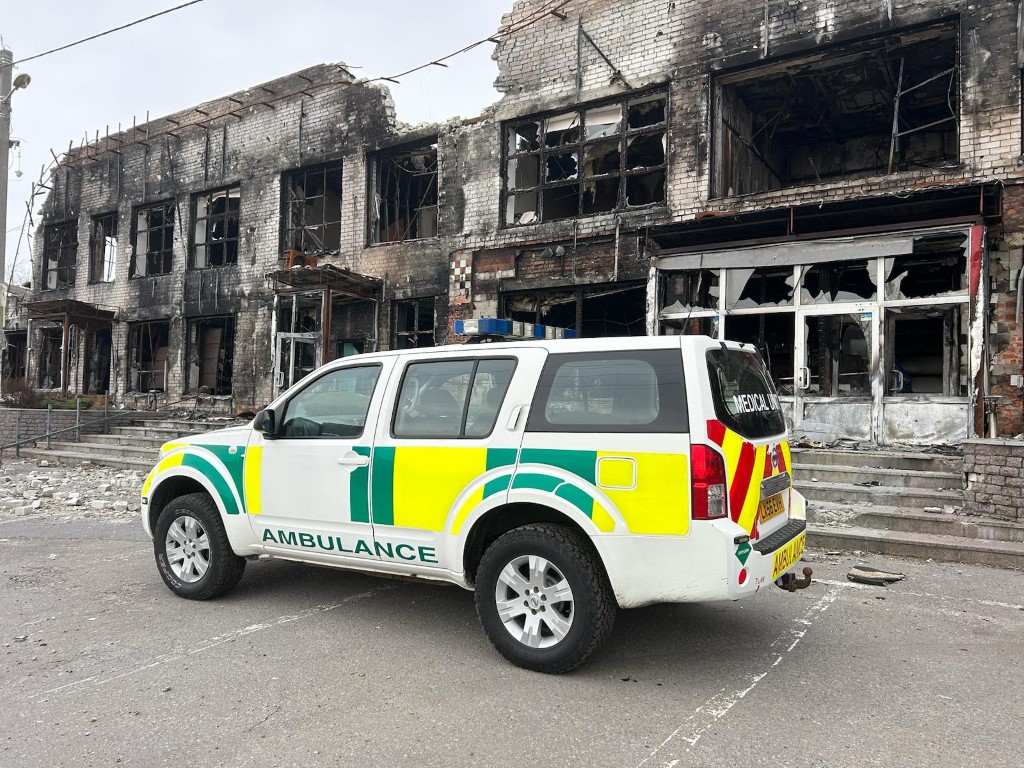
After the invasion of Ukraine on 24th February 2022, Dr Alex Trustrum-Thomas set out for the country without any idea of what the next two years had in store. Having set up a charity – KHARPP – to help get support as far east as Kharkiv, Alex, who holds a PhD from the University of Oxford and is a visiting researcher at Karazin Kharkiv State University as well as the University of Warsaw, still works with people on the ground in Poland and Ukraine to get aid and support from the UK across Europe. Full disclosure: it was doing this trip with three friends and two vehicles full of medical supplies last summer that I found myself unexpectedly involved in the cause.
On the eve of the second anniversary of the invasion, I sat down with Alex to hear his powerful, moving and frightening experiences with KHARPP that offer a greater understanding of the conflict. The following interview is an illustration of the situation in Ukraine as well as the frustration that comes with trying to do something.
PK Fellowes: Where were you when the invasion started? What led you to Ukraine?
Dr Alex Trustrum-Thomas: I spent most of the first few days watching twenty-four-hour news coverage in London, where I was living at the time. It came as a total shock. I couldn’t believe what I was seeing. It took me a while to process events before I started taking action. I went to protests in London but that seemed a completely feeble form of action and that’s when I decided to go to Poland. I’d been to Ukraine numerous times over the years and felt a strong connection to the country.
The moral outrage I felt was a powerful motivator and continues to be so. Rarely are modern conflicts as clear-cut as this one.
A friend of a friend was driving out a van full of humanitarian supplies and I offered to come and help with communication. I packed a bag and we headed to Przemysl, the nearest town in Poland to the Ukrainian border, at that time the epicentre of a refugee crisis. At the beginning the media was reporting that the situation on the border was under control, that the DEC and ‘big aid’ were on the ground providing for all the needs of the refugees. They were discouraging people from going, on the grounds that you would just get in the way, but we decided to go anyway and deliver our aid. We expected to stay for a couple of days, have nothing to do, feel a bit voyeuristic, then drive back to the UK with a sense of ‘mission completed’.
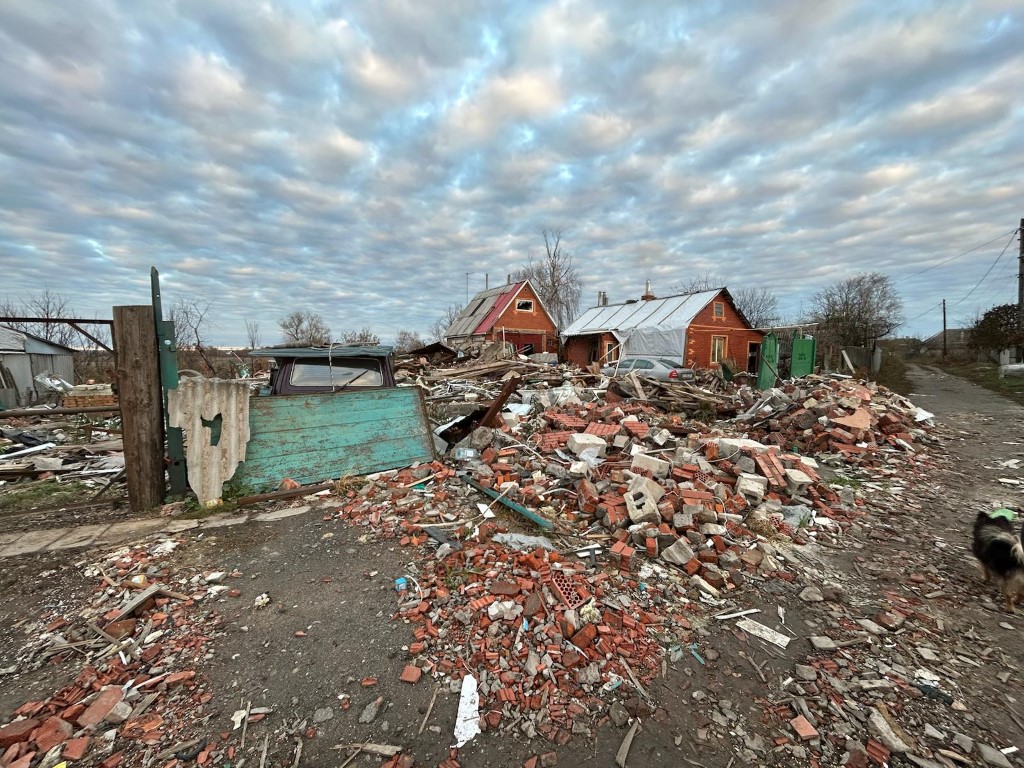
PKF: Obviously that didn’t happen… what led to you staying and founding KHARPP?
ATT: It was the total opposite. It was chaos, a very bleak situation. There were a lot of frightened, vulnerable people, confused, hungry and exhausted. Many were forced to sleep outside on railway platforms or in car parks. Remember this was in March — there was snow on the ground and temperatures were well below freezing. Within minutes of arriving at the refugee centre, a closed down Tesco supermarket, we found ourselves surrounded by people asking for information about onward travel. We had no choice but to learn the bus and train timetables and start playing the role of free travel agents. It quickly became clear that we would not be leaving after two days. Through friends from Kharkiv I was introduced to an inspiring grassroots organisation, Kharkiv Aid Office. I started a crowdfunding campaign to support them, money was very easy to come by in the beginning. People were practically throwing it at us — literally, in the case of some Americans who came to Przemysl to hand out cash.
When supplies started running short in Kharkiv, I started buying food, medicine, hygiene products, and whatever else they needed in Poland, taking it over the border and sending it eastwards on pallets. It was around then that we founded the Kharkiv and Przemysl Project (KHARPP), to support refugees and those staying behind in the Kharkiv region through our collaboration with Kharkiv Aid Office. KHARPP has developed a lot and is now a UK-registered charity predominantly focused on home repairs in formerly frontline and deoccupied towns and villages north of Kharkiv city.
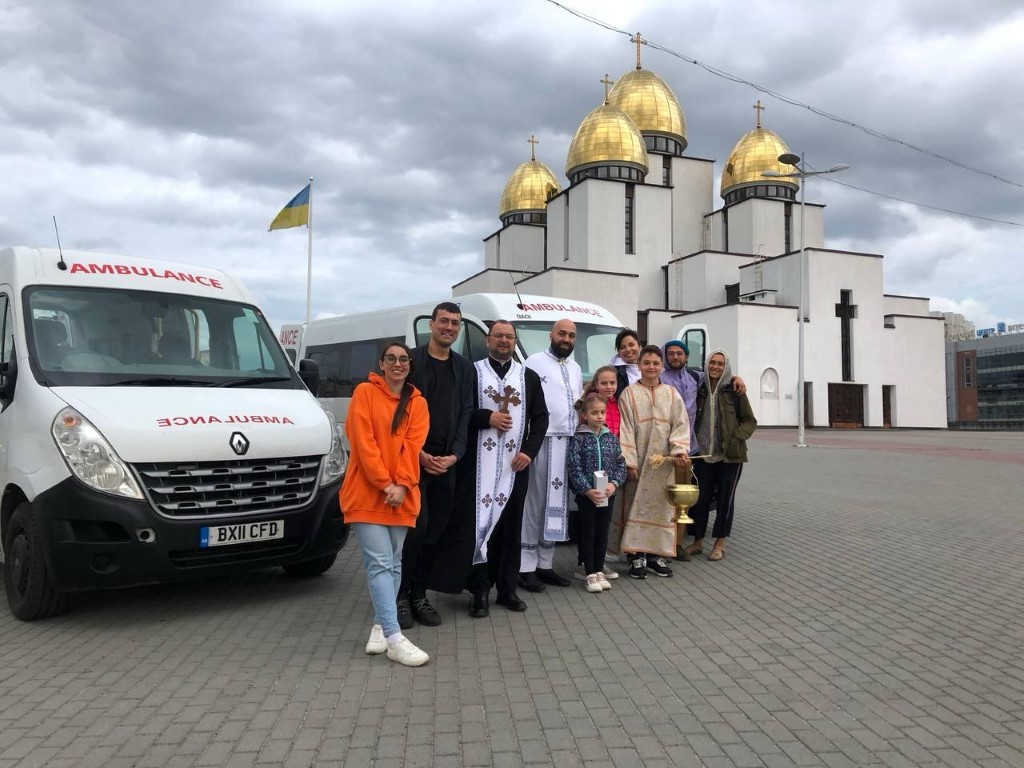
Along with Kharkiv Aid Office, the other organisation I work with is Livyj Bereh (Left Bank), which is an extraordinary Kyiv-based group providing humanitarian assistance to both civilians and soldiers. As the war has dragged on, the focus has shifted from emergency support for civilians to support for those in the greatest danger, risking their lives in the trenches so others can sleep in their beds at night. The gradual shift away from civilian support towards those on the front line is a trend for many Ukrainian aid organisations. It makes sense from a Ukrainian point of view but creates problems for international organisations because of strict protocols around humanitarian aid only going to civilians. This is unfortunate because the best way to help a civilian is to support the people holding the front line in place. The reality is that Russia’s aims have not changed, as Putin stated in his New Year’s address on Russian television. Given the chance, they will occupy far more territory than they currently hold. This is terrifying for any Ukrainian living east of the Dnipro river with homes under Russia’s intended area of conquest.
PKF: How did the response from the West manifest on the ground and was it a surprise to you?
ATT: I think it’s too easily forgotten that the UK and the US (and indeed Russia) signed an international agreement in 1994 guaranteeing Ukraine’s territorial integrity in exchange for giving up nuclear weapons acquired after the dissolution of the Soviet Union. This treaty was celebrated at the time as a triumph for global denuclearization. Which nuclear-armed country would now consider giving up its arsenal in exchange for worthless security guarantees? The argument in favour of possessing nuclear weapons has never been stronger, something not lost on countries like Iran and North Korea. By not supporting Ukraine to speedily and decisively expel Russia from its territory, the West has sacrificed its bargaining power when it comes to controlling nuclear proliferation. The US and the UK should have done more and gone further than they did in the early stages of the war.
There is every possible pretext for supporting Ukraine militarily to re-secure its internationally recognised borders but after two years drip feeding the Ukrainian army, the political will to do the right thing is sadly no longer there.
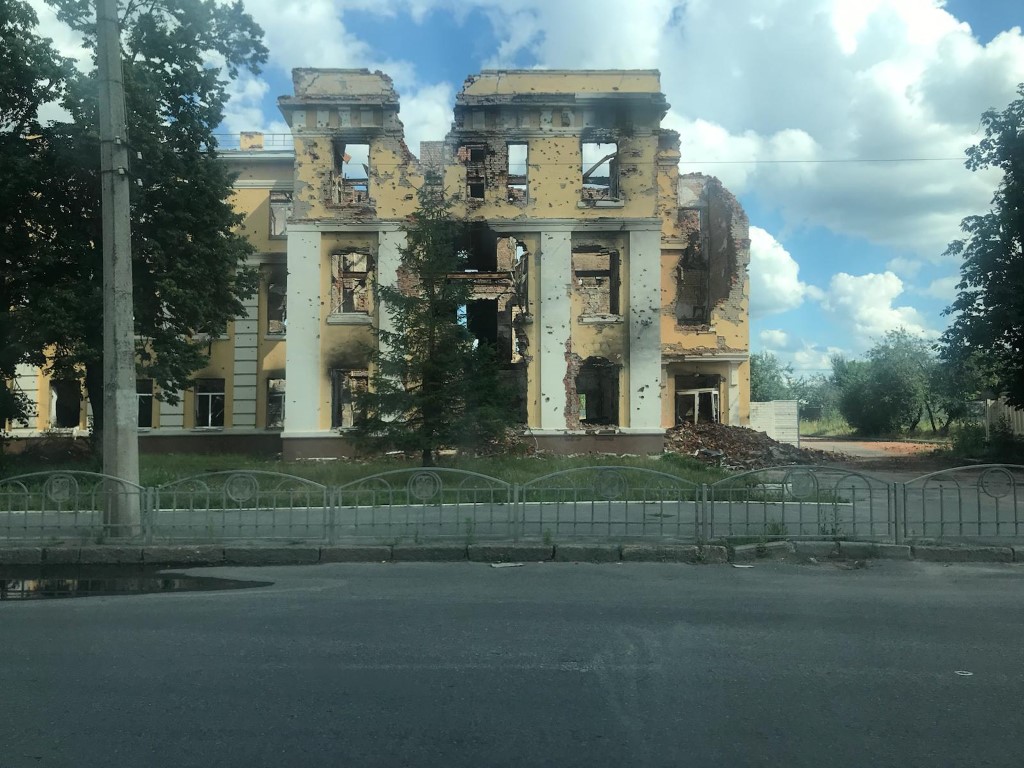
PKF: We’ve spoken before about the impact of living in Kharkiv leading to a sense of fearlessness. Could you speak a little about that?
ATT: This is a difficult question and uncomfortable to answer. When you are living under regular bombardment, you have a choice — to flee the danger or to accept it. Many people in Kharkiv and elsewhere in Ukraine chose the former but many others stayed or returned and accepted the new reality and a heightened risk to life. There is a level of danger in life wherever you are and whatever you do. If you hide in your bedroom all day and never leave, your house could still collapse on top of you. Ukraine is no different, just on a heightened scale. There is a higher risk the closer you go to the front line and everyone has to make choices about what level of risk they’re prepared to take.
Life in Kharkiv was undeniably dangerous and frightening but it’s much worse in a trench on the front line, so it’s possible to suppress the fear by making a relative comparison to somewhere more dangerous. If you asked a psychologist, I think they would say that it is not really fearlessness that people experience in those situations but rather the suppression of fear as a coping mechanism to carry on with your day.
You become nihilistic after a while. Living with the fear of a rocket coming through your bedroom window every night takes its toll.
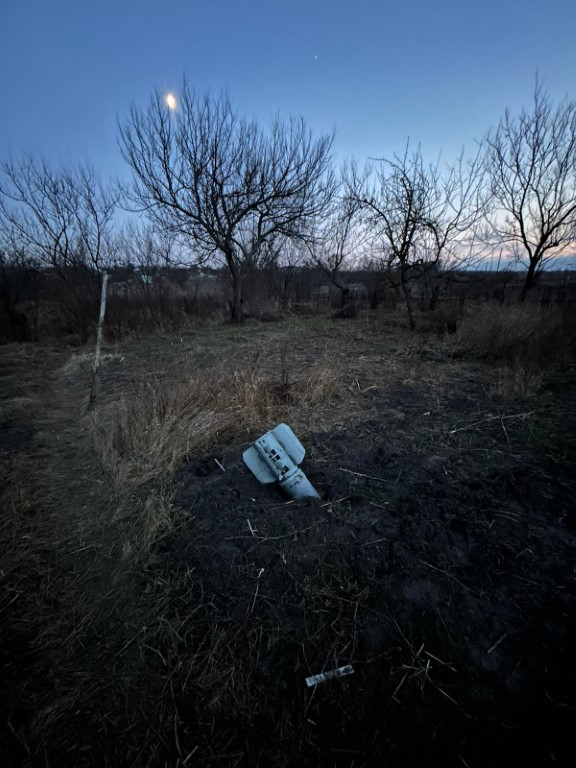
PKF: So now, on the other side of that, can you and KHARPP still do the work that needs to be done? I’m wondering whether one needs a particular set of attributes to do this kind of work. It’s compelling to think we can all do something to help but really I think what you have done is extraordinary and not something I could do.
ATT: My work now is more supply-oriented, supporting the groups I mentioned before to source and acquire what they need in the UK and Europe. The war has reached a really critical phase and I’m more effective this way. At one stage I wanted to sign up to be a field ambulance driver but there is no shortage of drivers. There is, however, a chronic shortage of vehicles. Focusing my energy on providing off-road vehicles for the front line has enabled dozens more people to save lives evacuating the injured along the eastern front. People are motivated for different reasons to help but the main attribute needed is time. Many people care but can’t afford to jump in a van and drive across Europe. That said, I have been so pleased by the response of friends and family, many of whom have driven vehicles full of supplies across Europe, or came to help refugees in Przemysl during the early phase of the war. I am so grateful to them all for their support. The sense of solidarity has been a source of comfort even in the darkest days.
PKF: Can small charitable organisations like KHARPP survive over a long period of time or is it inevitable that attention eventually turns away and towards the Red Cross or Oxfam, for example?
ATT: Whether single-issue charities survive in the long run is down to management decisions, the motivation to continue, and whether they can stay relevant in the eyes of donors. The smaller charities that emerged out of the war are at a crossroads — to gradually fizzle away and allow the big NGOs to fill the void, or to institutionalise and apply for grants and financial support from governments, trusts, businesses, and elsewhere. This money comes with more strings attached than donations from the general public and is much more burdensome in terms of paperwork. Organisations like KHARPP exist on a shoestring and many people have given prolonged periods of free labour to enable operations to continue.
Undoubtedly difficulties lie ahead for many small charities in terms of their long-term sustainability.
PKF: Last question, what is it about Ukraine that sets it apart?
ATT: Ukrainian history is a centuries-long struggle for independence punctuated by great tragedy. As a result there is an infectious love for life. The country is gifted with incredible natural beauty and as the largest country in Europe, there is a lot of it. People know the Carpathians and the Black Sea but also there is the subtle beauty of the ‘black earth’ steppe land in the east, the Danube delta in the southwest, the northern forests and swamp lands on the border with Belarus (the same swamp lands that saved Kyiv from occupation in the first weeks of the war). Culturally it is very rich, there are different languages, religions, and ethnicities, all of which contribute to a diverse, multicultural nation with a complex but proud history.
Ukrainians themselves are warm, hospitable, peaceful people and it is devastating to think how much cultural heritage and ecological diversity has been lost as a result of Russia’s indiscriminate military tactics. A favourite pastime of Ukrainians — and Slavs more generally — is walking in the forest collecting mushrooms and berries. A whole generation of Ukrainian children will grow up without this, forbidden from entering the forest by their parents out of fear of undetected landmines.
The war has already left an indelible mark on the country, and this is just one of the innumerable tragedies that will linger on for long after it ends.
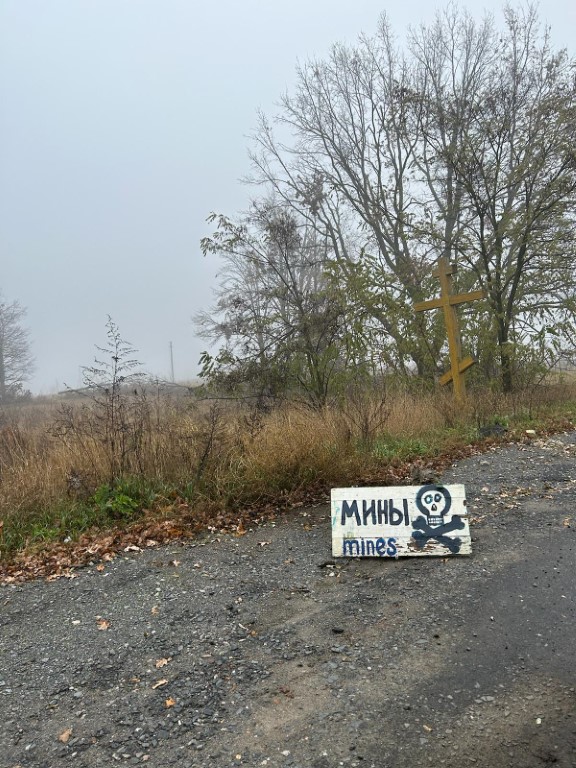
Images courtesy of Dr Alex Trustrum-Thomas
Interview: PK Fellowes (@ellipsispictures)
Follow: Dr Alex Trustrum-Thomas (@trustrumthomas)
KHARPP (@kharpproject)
Kharkiv Aid Office (@kharkiv_aid_office)
Livyj Bereh (@livyj_bereh)